Once upon a time, about 2500 years ago, there was a quiet awakening in the mind and spirit of the residents of a small town -located on a sea shore, almost at the far end of the western border of a civilized world. This not only left a lasting impression on the region, but over the centuries, the entire world’s history had a shattering impact. A large part of the civilized world, today think and feel differently because of the events that took place circa 500 BC in this little town.
What transpired was the development of the first recorded attempt to introduce Democracy as a way of life. It could be just a coincidence or the effect of newly introduced system of democracy, but this period was also the golden age for that sleepy town; and nothing remained the same – for the world and for that little town known as “Athens”.
(Of course, as pointed out by my brother, who has always been a mentor to me, in the comments below, almost a century earlier, the Indian sub-continent itself had another practising democratic state - Vaishali (in Modern day Bihar). A tale about that city, phir kabhi.)
(Of course, as pointed out by my brother, who has always been a mentor to me, in the comments below, almost a century earlier, the Indian sub-continent itself had another practising democratic state - Vaishali (in Modern day Bihar). A tale about that city, phir kabhi.)
And here we were, free citizens of the largest democracy of the world, travelling – as a part of the first leg of our trip to Europe – to Athens. This was definitely not intended to be a trip to pay respect to the cradle of modern democratic state. But what we saw and experienced over 3 days in Athens was not only a journey of lifetime for us but a journey into the Cradle of Democracy itself.
Nevertheless, this was yet to be experienced, and so my mind was full of trepidation as the plane glided into Athens, on that bright and reasonably hot sunny afternoon of May, 2007. I use the word trepidation because the web surfing had brought to me travails that tourists in Athens had poured about. The web surfing had also got me in touch with people like Matt Barrett - a blogger passionate about Greece. And the trepidation was because of the confusion about what we were getting into. Starting from the immigration desk, over next three days, however, everyone in Athens went out of their way to dispel our apprehensions – making us feel more and more at home.
The hospitality might come easier as far as Greeks are concerned but the language is something that make you feel closer home – as difficult to follow as we find the moment we cross into another state within our own country. The fact that most of the places we visited had names which were tongue twisters, as well as difficult to spell, was a rule. Add to this the fact about various ways the same place could be known as – due to it having been occupied by various set of cultures over different periods in history, and the confusion abounds. No wonder even Shakespeare had one of his characters describing his state of confusion as “It was all Greek to me”!
Being short on time, we used the early morning and day time to explore the city, while taking advantage of summer; evenings were spent in exploring the streets of Glyfada, a beautiful suburb, close to the sea shore with shops on both sides, of the main street, bisected through tram tracks. The area, bright and lively; was made more vibrant with the cosmopolitan potpourri pervading the streets. A couple of musicians, playing their instruments on the street corner, a man with a bioscope, walls with beautifully coloured tiles, aroma emanating from various eateries enhancing the flavour, all added to the quaintness of the street.
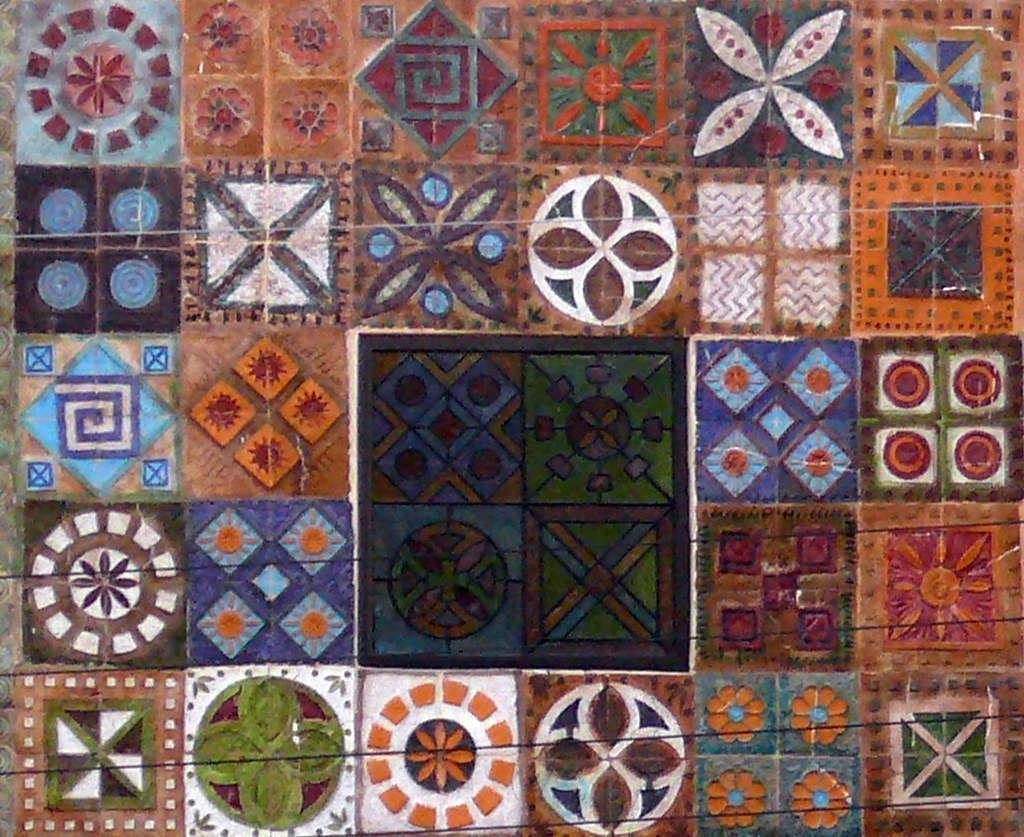

Early next morning, our taxi driver Dimitri –nay, our Friend and Guide for two days, who also owned his taxi, was at our hotel sharp on time & very eager to take us for a tour of the city, and other surrounding areas. Well educated and informative about the entire history of the places we were visiting, he was equally interested in knowing more about India and her culture. His observations on everything Greek – be it the corrupt politicians & civil service or the present culture – brought home to us the raw strands of wisdom similar to usually our own taxi drivers provide.
You may read more about him at my post - http://urbanyayawar.blogspot.in/2012/02/dimitri-greek-guide.html
The first trip that he had planned for us, took us on the route starting from ancient Acropolis of Corinth, Mycenae, Epidaurus and Nafplio. Corinth is well known for the canal cutting across the Isthmus of Corinth, linking the Gulf of Corinth with the Saronic Gulf in the Aegean Sea. Although it was finally built in 1893, the history does speak about earlier efforts to build a canal at this location commencing from 7th century BC right through the period of Roman emperors, Julius Caeser and Nero.
Our next halt was Mycenae - one of the mightiest kingdom of ancient Greece. Much more ancient in its establishment, and settled amidst hilly terrain, Mycenae is believed to have been established around 2000 BC before lost in the mist of time. It was rediscovered during the middle of the 19th century, by archeologists, and over the years they excavated most of the ruins of this ancient wonder.
Mycenae is where Greek mythology meets the history, the most well-known one being the abduction of Helen, wife of Menelaos, the brother of Mycenae’s king Agamemnon - leading to the Trojan War. As one walks through the Lions’ Gate, one can easily imagine the dramatic past. The national museum at Mycenae, showcasing ancient art, sculpture and civilization – including golden mask of Agamemnon, indeed amazes you with the level of art, science and knowledge achieved about 3500 years ago. No wonder, the period of 1600-1100 BC in Greece is known as Mycenaean period.
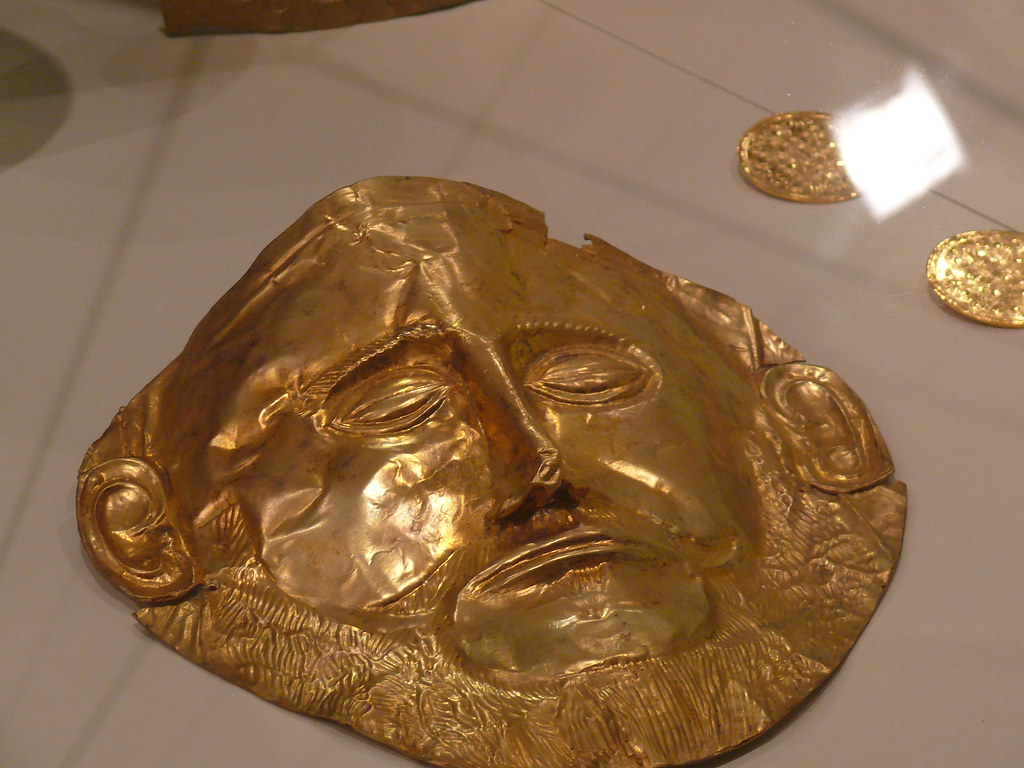

It could be the same reason for why most of the souvenir shops were stocking only the replicas of these ancient arts - including their bestseller - the Pythagoras Cup – an intricately designed cup to be used for controlled wine drinking, invented by Pythagoras around 2500 years ago. The cup ensures that a person can drink only in a moderate level and if he decides to be greedy and overfills the cup, the entire contents could spill over from the bottom (may be onto the lap of the immodest drinker!). Imagine, that so far Pythagoras formulae has been the only pain ascribed to him!
The tour took us back to Athens from Mycenae via the Amphitheatre of Epidaurus and the port town of Nafplio – popular among Athenians for weekend trips, with its mid-harbour Venetian fort of Bourtzi and on-shore castle of Palamidi.
The Amphitheatre of Epidaurus showcases the advancement of Greek civilization. Designed & built in 4th Century B.C., the theatre, with 55 semi-circular rows to seat about 14000 people and a lush green backdrop to its centre stage, is renowned for its excellent acoustics. The theatre is so designed that even the unamplified sound of a match struck at the centre stage can be heard clearly by the audience seated anywhere in the theatre. On the other hand, the limestone material of the seats provide a filtering effect, suppressing low frequencies of voices, thus minimizing background crowd noise. Sitting in the Amphitheater, I could imagine the thrill of the audience 2500 years ago watching the performers enacting Greek tragedies.
The final day of our trip was spent in exploring the ancient sites of Athens itself in the morning, starting with the Parthenon, a 4th Century B.C. temple of Goddess Athena – the reigning deity and protector of Athens, on the Acropolis. Established as a temple as well as a treasury, the Parthenon was later converted into a church and then a mosque as the rulers changed in Athens, before finally getting severely damaged due to an explosion in the ammunition dump inside the temple. In the ruins now, one can still imagine its past beauty and strength.
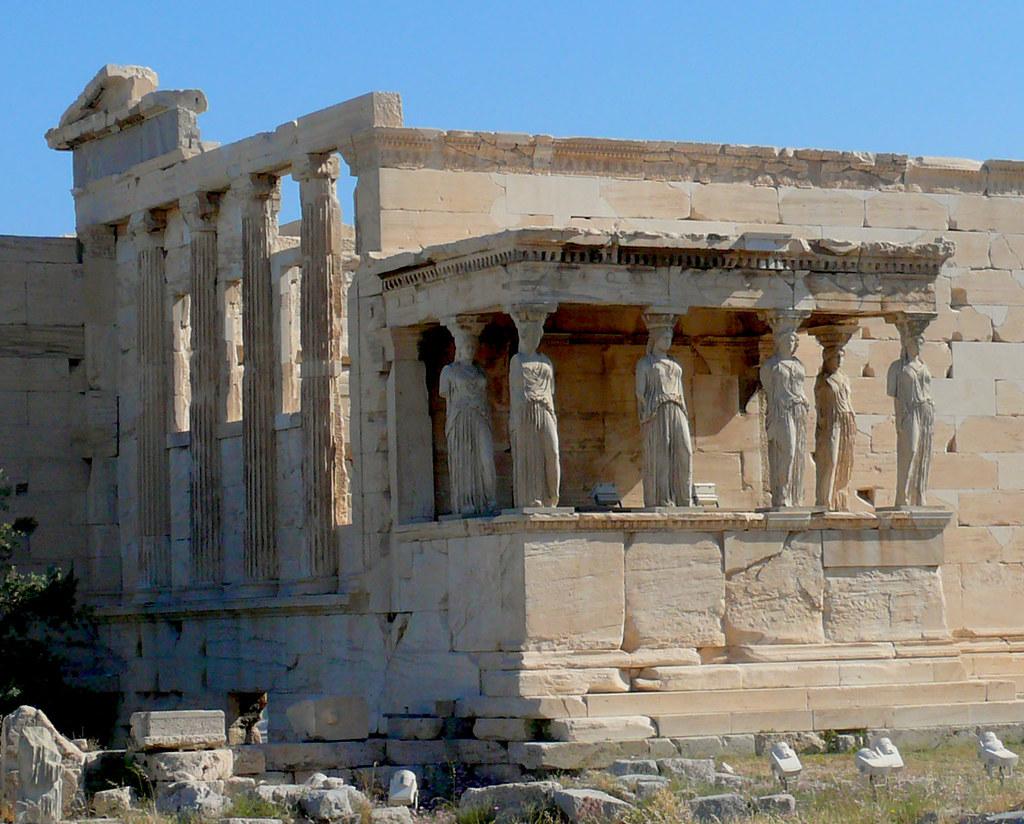
Comparatively, the temple of Olympian Zeus – construction for which commenced in 6th Century BC and completed in 2nd Century AD – which was renowned as the largest temple in the Greece during Roman times, lies in complete ruins now and its glory days just can not be imagined. A visit to the national museum at Athens again brings alive the ancient history while the stadium built for the first modern Olympics of 1896 AD connects the modernity to that glorious past.
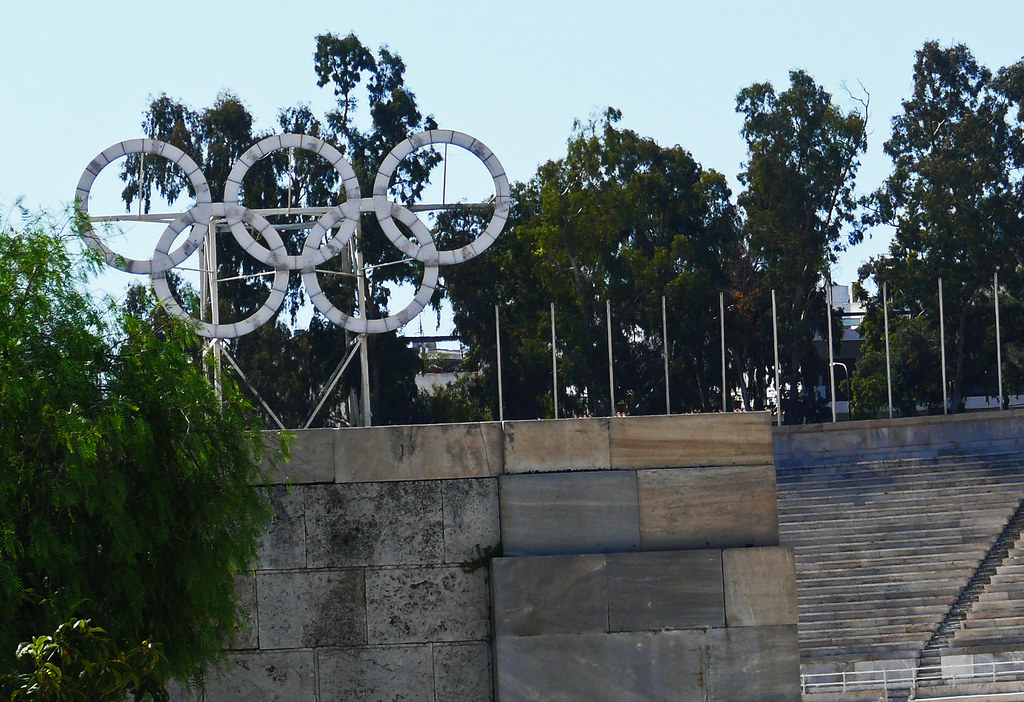

Comparatively, the temple of Olympian Zeus – construction for which commenced in 6th Century BC and completed in 2nd Century AD – which was renowned as the largest temple in the Greece during Roman times, lies in complete ruins now and its glory days just can not be imagined. A visit to the national museum at Athens again brings alive the ancient history while the stadium built for the first modern Olympics of 1896 AD connects the modernity to that glorious past.

Our last visit for the day, after exploring Attica Zoo -one of the best zoos that I have ever visited, was to the Temple of Poseidon, the god of oceans, at Cape Sounion, a perfect setting for signing off from Athens. The temple, dedicated to the second most powerful god in the Greek Mythology, is another 5th Century creation now in ruins. The temple itself has a dramatic location, lying on a cliff and surrounded with the lovely, blue, Aegean Sea on three sides.
The cool breeze, all pervading peace, except the sound of waves breaking onto the shore below the temple made British Poet Lord Byron write:
Place me on Sunium's marbled steep,
Where nothing, save the waves and I,
May hear our mutual murmurs sweep

As we left Athens the next day, I realised that the essence of Greece is in the beauty that looks desolate initially, but as you reach out to understand its history, it grows onto you and keeps you hooked forever. Paraphrasing Lord Byron, I would love to say:
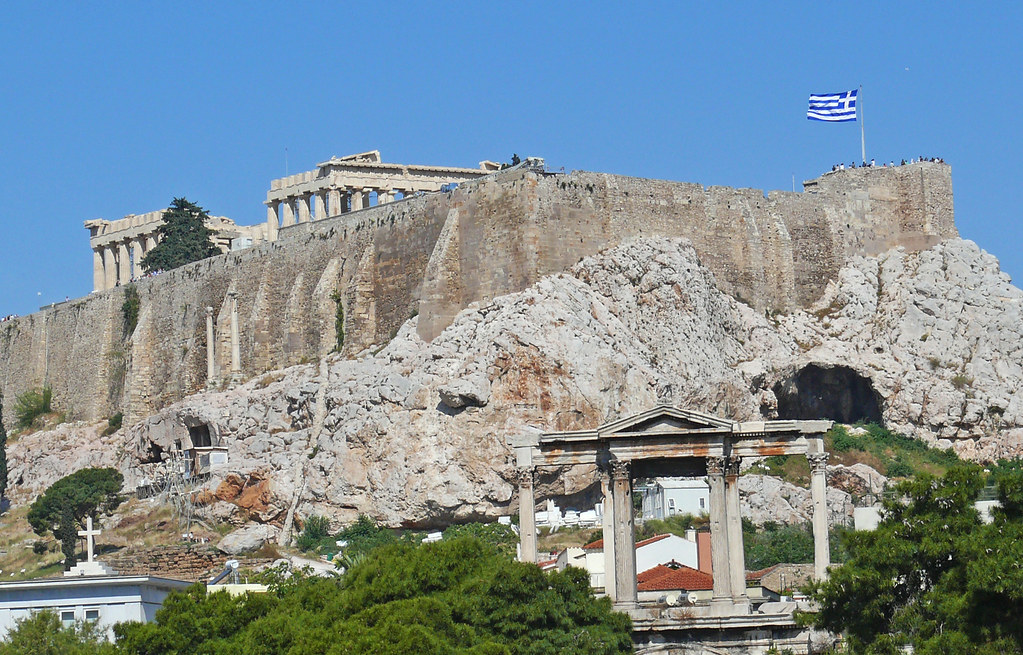
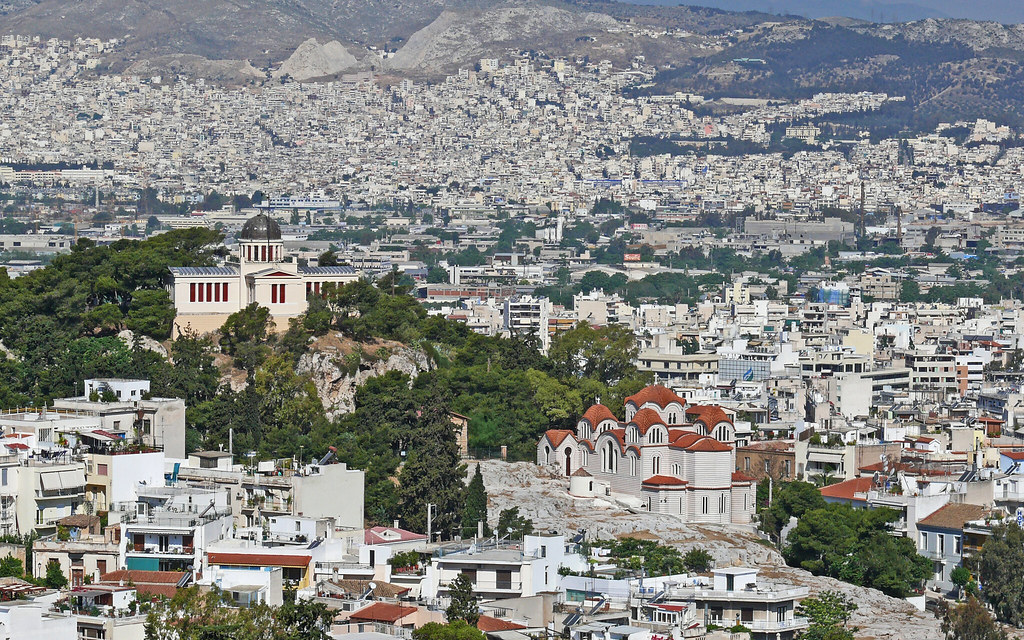
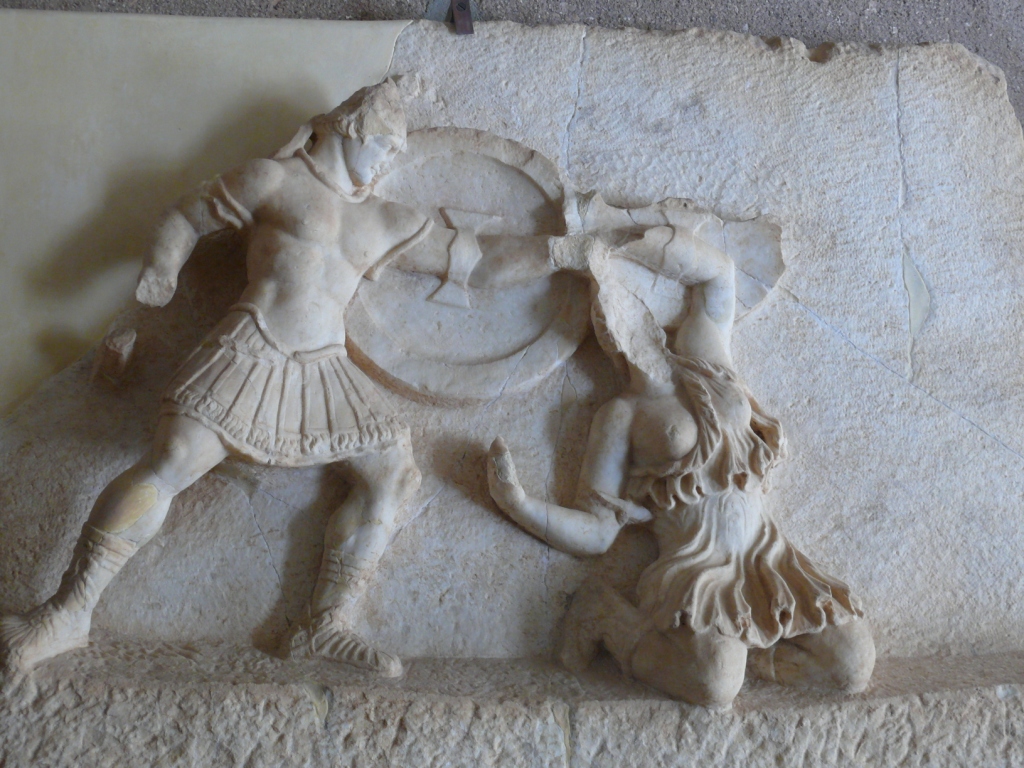
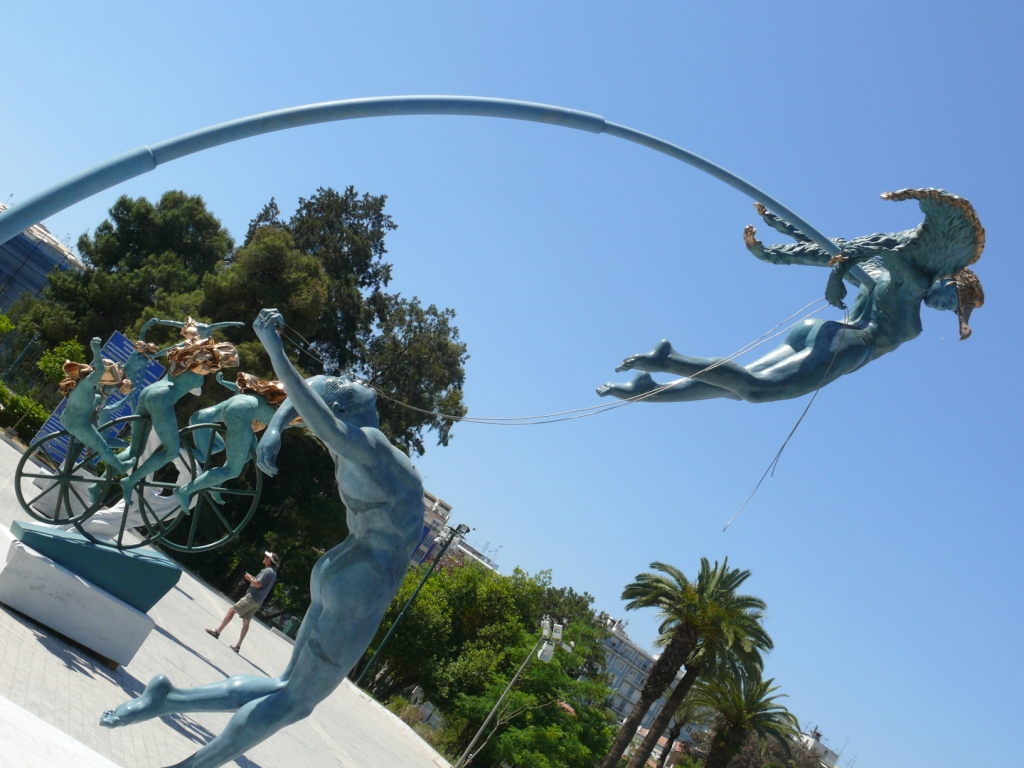
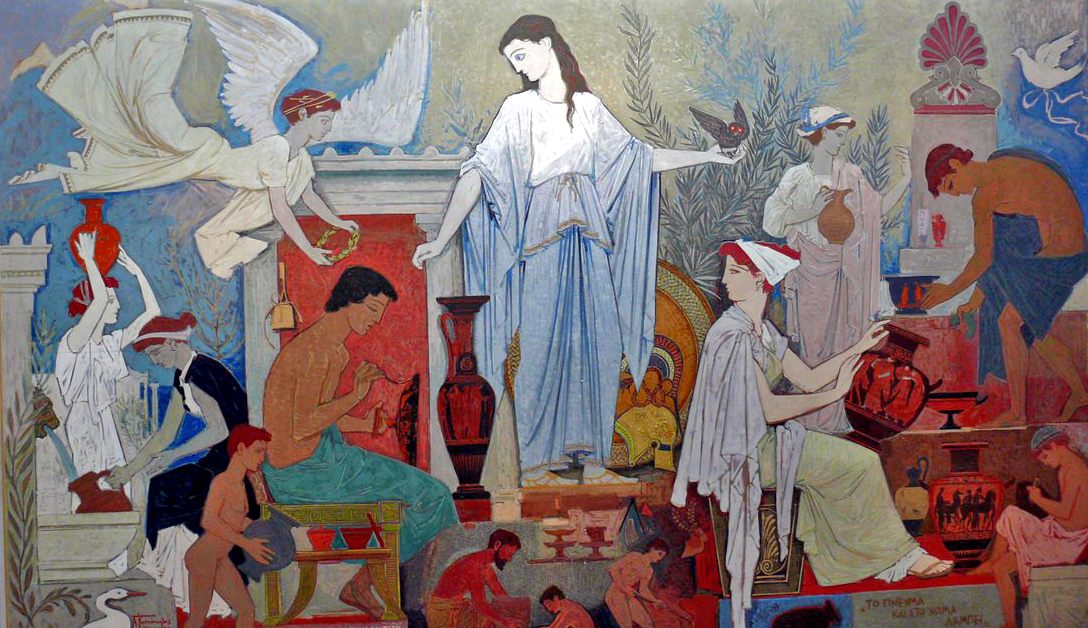
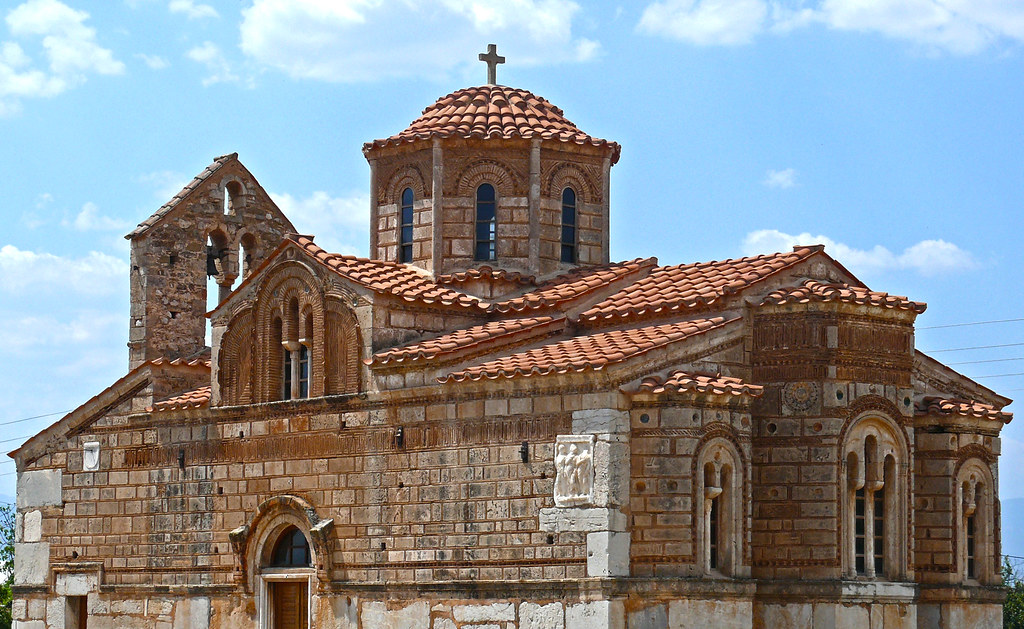
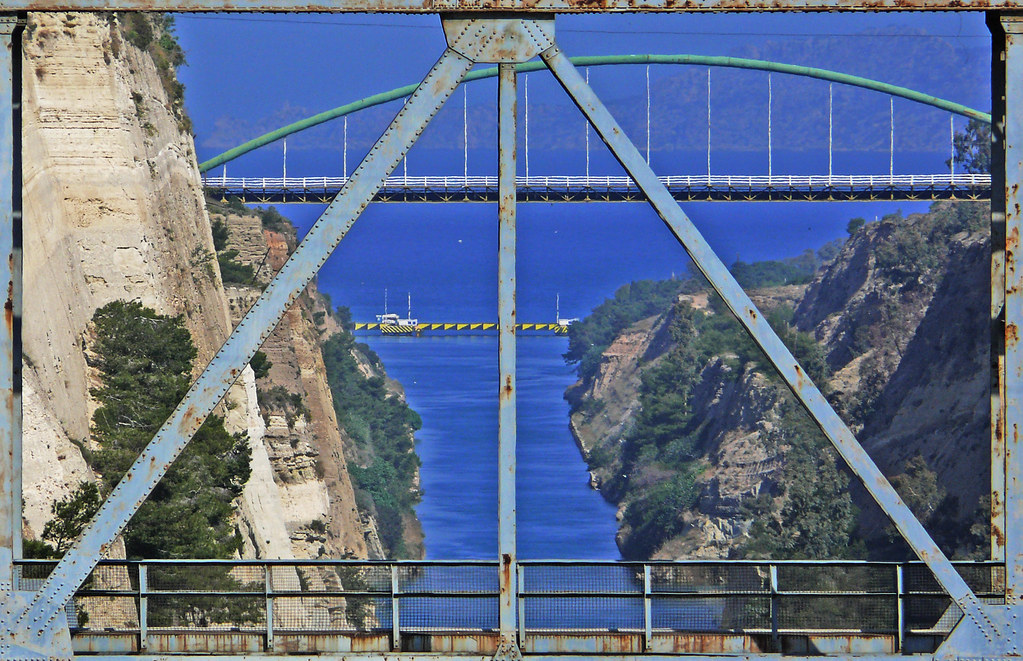
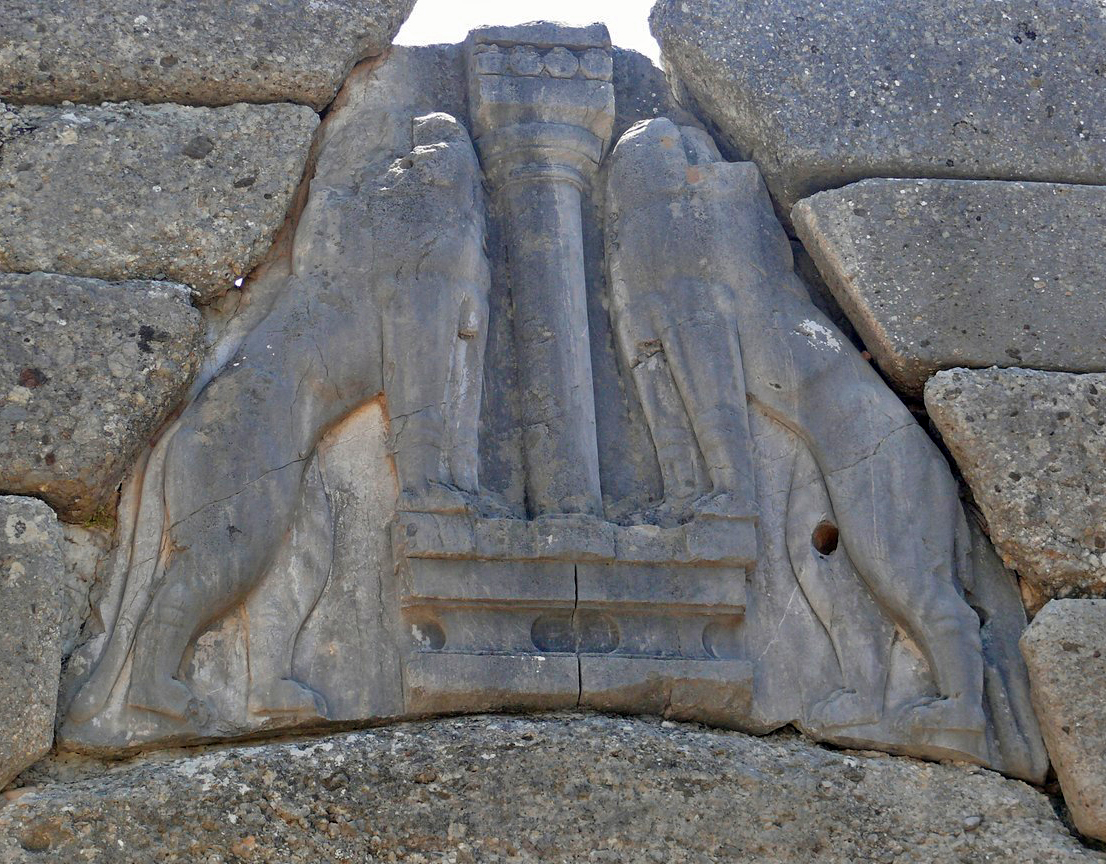
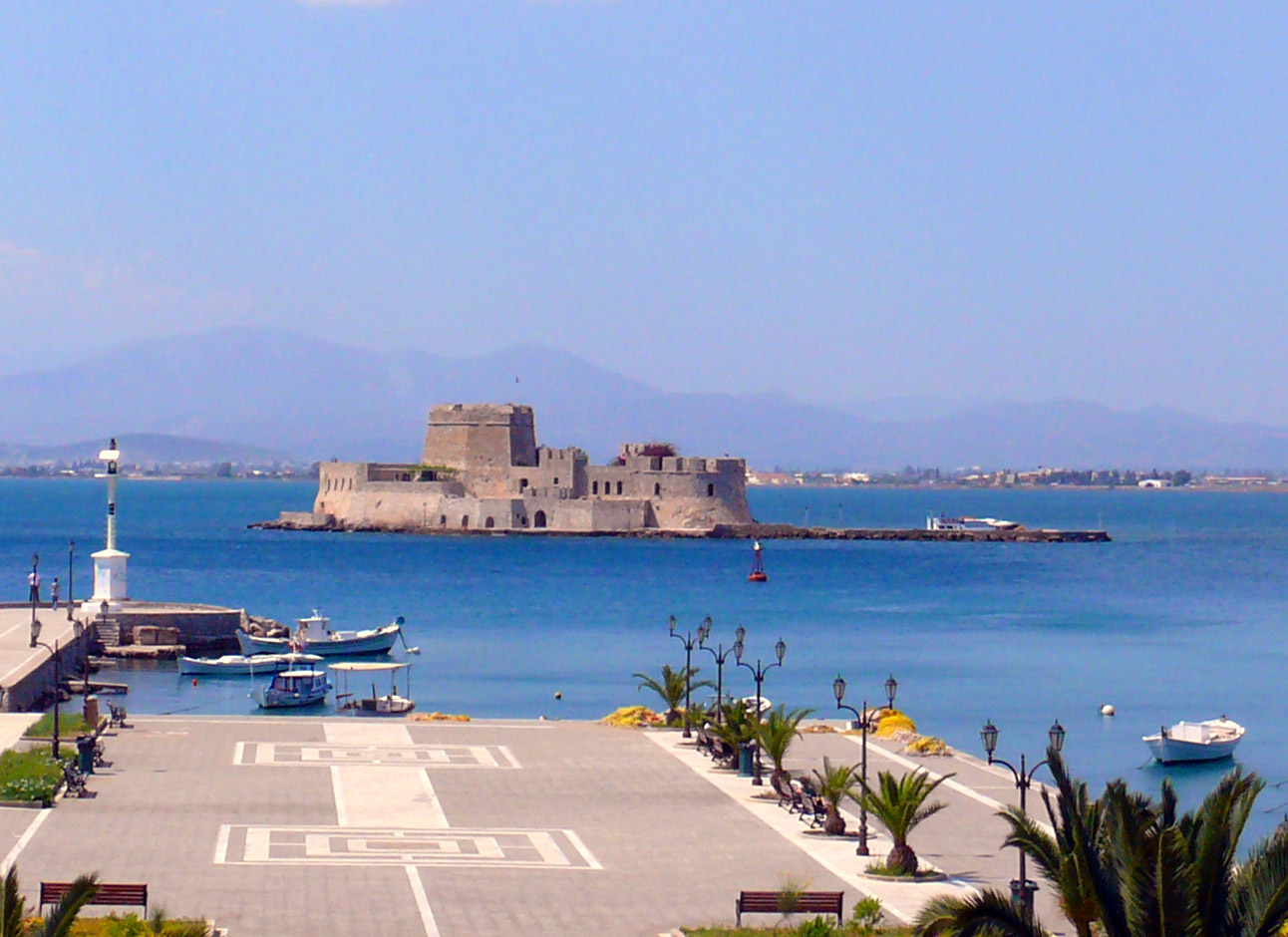
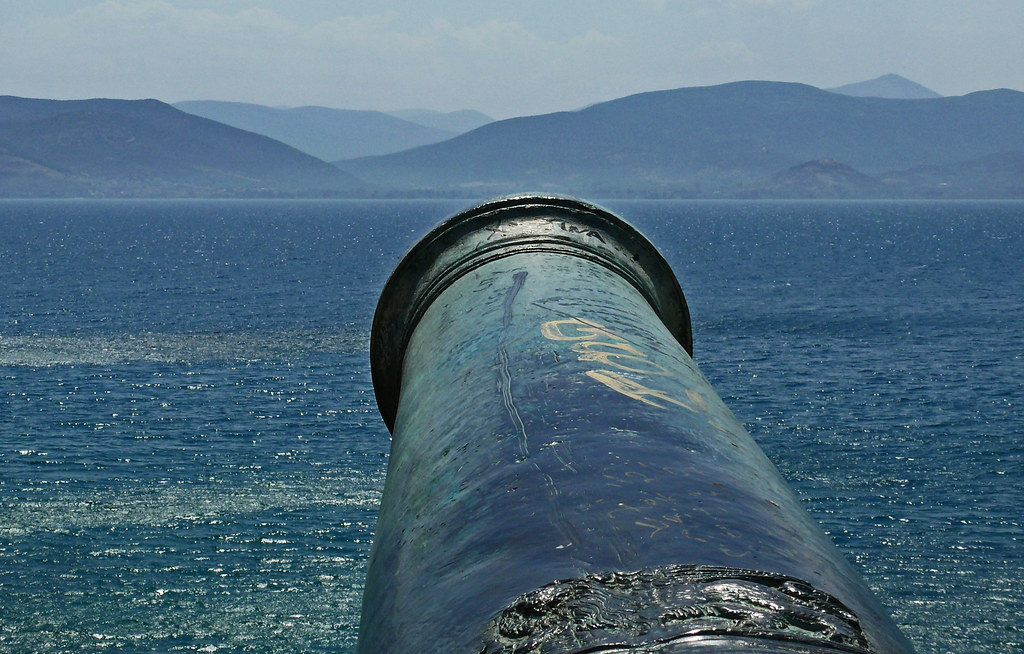
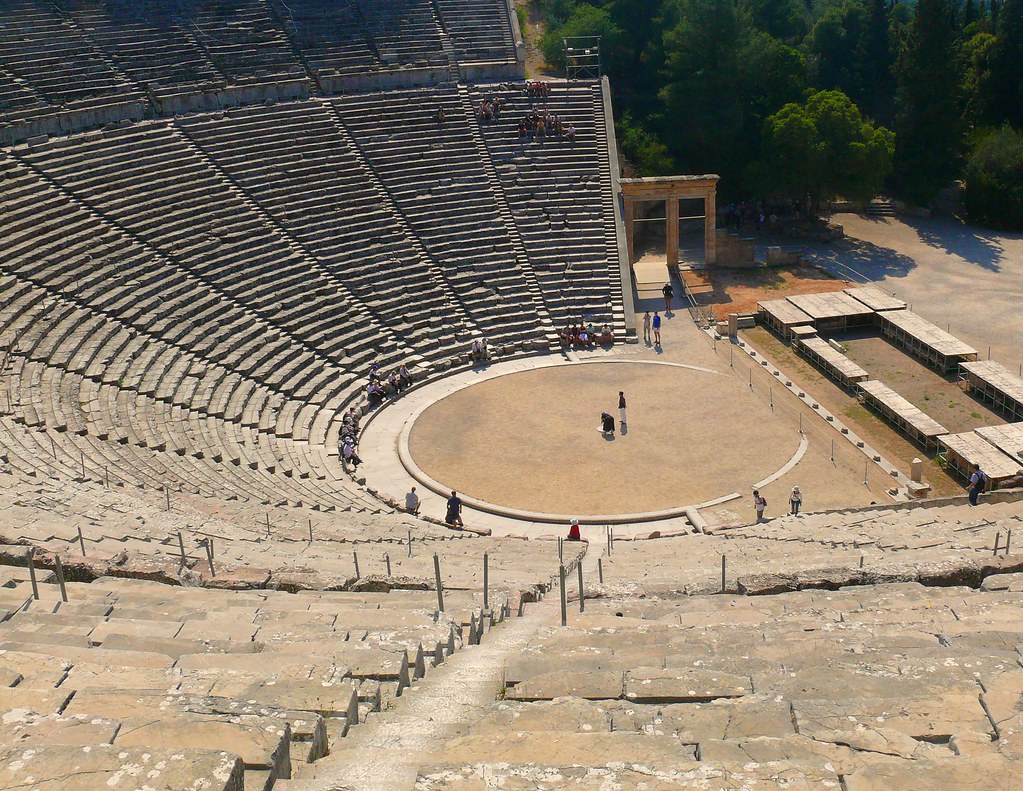
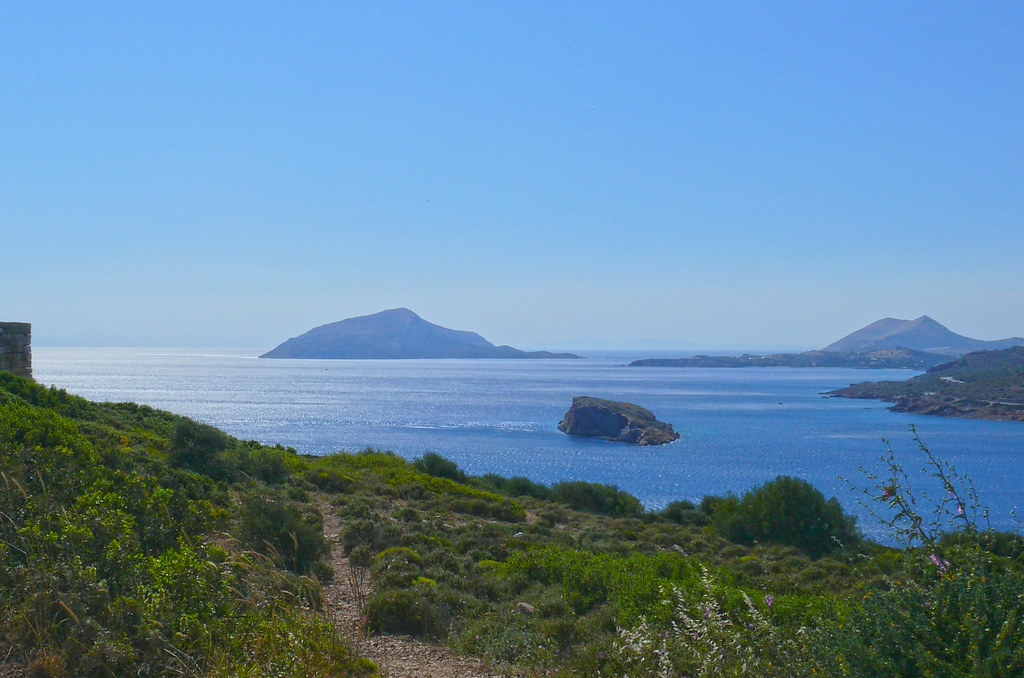
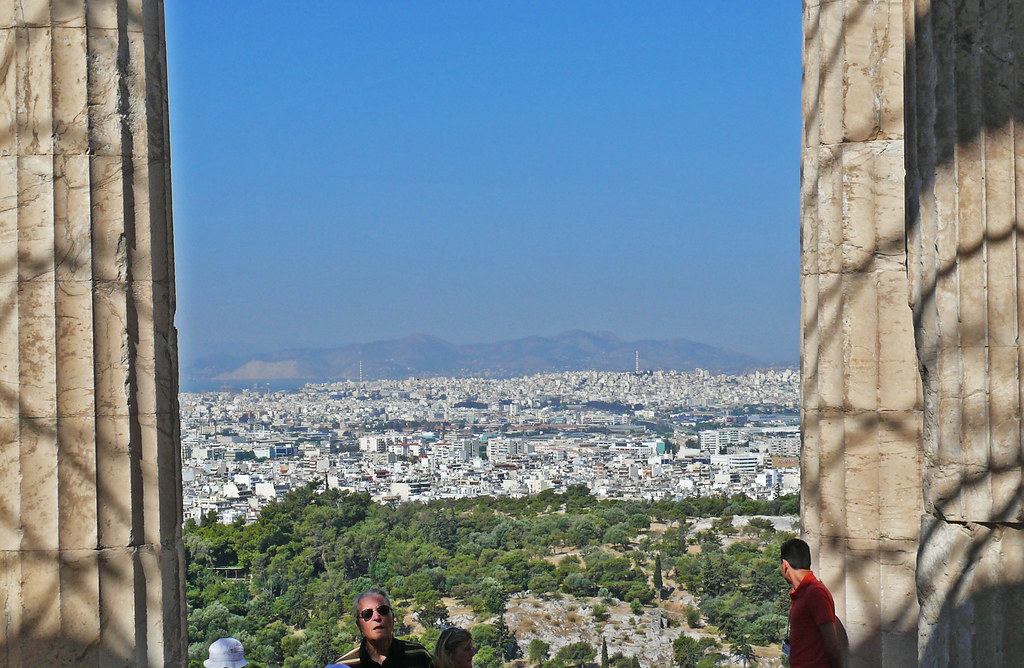
3 comments:
Ashish,
Very interesting account. Will definitely help us as and when we take our trip.
It is generally believed that Athens was the cradle of democracy. In the Western thought it may well be justified. It is always the viewpoint of the winner or the ruler that is recorded as history for the future generations to follow. Most of the Indian historians (specially those having leftist leanings)have also fallen prey to the same thought process. However, nearly a century before the democratic process started in Athens, this was practiced in the ancient Indian state of Vaishali (a part of modern day Bihar) by the Lichchavis. Incidentally, Mahavir Jain was born to a wealthy nobleman of this tribe. I am not sure if there is any older record of democracy being practiced anywhere else in the world. Love
Bhaiya
Enjoyed reading this account of your trip to Greece.It was like refreshing my memory as my visit was a couple of years before yours. So true, whatever we see in Greece has a "once upon a time" feel to it!
So sweet of that Bangladeshi salesman ! We got no such bargain anywhere, but we did meet a Bangladeshi restaurenter who served us kindly.
It was only after we returned from Sounion that someone told us Lord Byron has scribbled his name at the base of one of the coloumns. Did you get to see it ?
Thanks Yosee, for your comments. No, we also did not get to see the name of Lord Byron, as part of the temple was barricaded for some reason.
Post a Comment